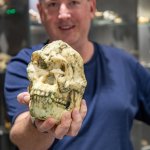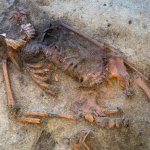It is beyond “reasonable doubt” that the Covid-19 pandemic originated in a Chinese animal market, a new scientific study has found.
Researchers from the United States and France discovered one stall in Wuhan, China, was a hotspot for coronavirus after analysing hundreds of genetic samples collected by Chinese authorities in 2020.
The analysis, published in Cell, compiled a list of animals including raccoon dogs, masked palm civets, hoary bamboo rats and Malayan porcupines, that were likely to have passed the virus to humans.
“It’s far beyond reasonable doubt that this is how it happened,” Professor Michael Worobey at the University of Arizona told the BBC, noting that other theories involve some “really quite fanciful absurd scenarios”.
Professor Kristian Andersen from Scripps Research in the US, added: “We find a very consistent story in terms of this pointing to the market as being the very likely origin of this particular pandemic.”

The research included 800 samples of genetic material Chinese workers collected on 1 January 2020 from the Huanan seafood market, the day after Wuhan municipal authorities first raised the alarm about an unknown respiratory virus.
Chinese scientists published the genetic sequences they found last year but did not identify the animals possibly infected with the coronavirus.
In the new analysis, researchers used a technique that can identify specific organisms from any mixture of genetic material collected in the environment.
Mark Woolhouse, a professor of infectious diseases at the University of Edinburgh, said the new study, while significant, left some critical issues unanswered.
“There is no question Covid was circulating at that market, which was full of animals,” he said. “The question that still remains is how it got there in the first place.”
In 2021, an expert group led by the World Health Organization concluded that the virus probably spread to humans from animals and that a lab leak was “extremely unlikely”.











